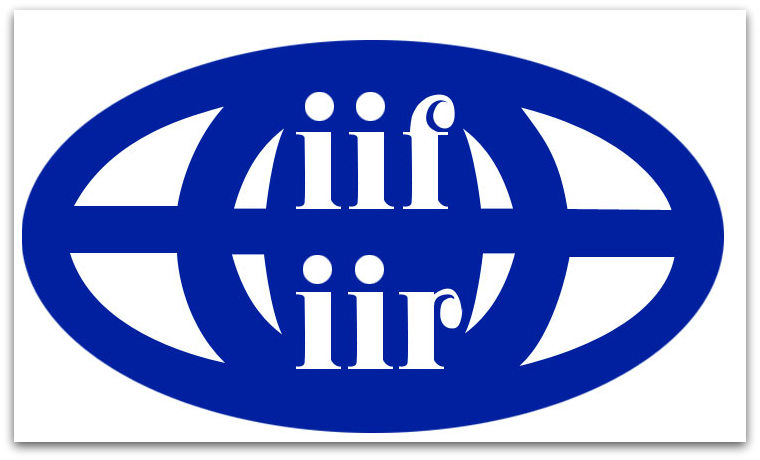The effect of the parameters of enzymatic hydrolysis of chickpea flour on the degree of destruction of vegetable carbohydrates and protein yield during the preparation of the isolate
DOI: 10.17586/1606-4313-2025-24-1-67-74
UDC 635.657
Kachanova Angelika V., Agafonova S.V.
Keywords: chickpeas, vegetable protein, enzymatic hydrolysis, protein isolate, reducing substances, dry substances.
UDC 635.657
The effect of the parameters of enzymatic hydrolysis of chickpea flour on the degree of destruction of vegetable carbohydrates and protein yield during the preparation of the isolate
For citation: Kachanova A.V., Agafonova S.V. The effect of the parameters of enzymatic hydrolysis of chickpea flour on the degree of destruction of vegetable carbohydrates and protein yield during the preparation of the isolate. Journal of International Academy of Refrigeration. 2025. No 1. p. 67-74. DOI: 10.17586/1606-4313-2025-24-1-67-74
Abstract
The process of enzymatic hydrolysis of chickpea flour has been studied to increase the hydrolysis of carbohydrates and protein yield. To select the hydromodule and the duration of hydrolysis, ensuring the greatest destruction of the carbohydrate fraction of vegetable raw materials and the highest degree of protein extraction, three series of experiments were conducted with the following conditions: hydromodule - 1:4, 1:6, 1:8, 1:10, 1:12, and 1:14; the duration of enzymatic hydrolysis -0.5, 1, 1,5, 2, 2,5, 3, 3.5, 4, 6, and 8 hours, which allowed to identify the most effective parameters for obtaining a protein isolate. The chemical composition of two samples of vegetable protein from chickpea flour obtained with a high content of reducing sugars was studied according to the results of three series of experiments. The analysis of the content of reducing sugars and solids showed a significant increase in the parameters in the samples with an enzyme complex compared with the control ones with different conditions of the hydromodule and the duration of hydrolysis, which confirms the effectiveness of the introduction of enzymes. As a result of the research, it was found that the content of protein, carbohydrates and other components varies depending on the process conditions, the content of reducing sugars in the liquid part has the greatest effect. The duration of enzymatic hydrolysis has a greater effect on the degree of carbohydrate degradation than the hydromodule. The conditions of enzymatic hydrolysis of chickpea flour contribute to a high degree of hydrolysis of carbohydrates and high protein yield – the duration is 4 hours with a hydromodule 1/8. Under these conditions of enzymatic hydrolysis, it is possible to obtain a high purity protein isolate with 90% protein content of on a dry matter basis.
Abstract
The process of enzymatic hydrolysis of chickpea flour has been studied to increase the hydrolysis of carbohydrates and protein yield. To select the hydromodule and the duration of hydrolysis, ensuring the greatest destruction of the carbohydrate fraction of vegetable raw materials and the highest degree of protein extraction, three series of experiments were conducted with the following conditions: hydromodule - 1:4, 1:6, 1:8, 1:10, 1:12, and 1:14; the duration of enzymatic hydrolysis -0.5, 1, 1,5, 2, 2,5, 3, 3.5, 4, 6, and 8 hours, which allowed to identify the most effective parameters for obtaining a protein isolate. The chemical composition of two samples of vegetable protein from chickpea flour obtained with a high content of reducing sugars was studied according to the results of three series of experiments. The analysis of the content of reducing sugars and solids showed a significant increase in the parameters in the samples with an enzyme complex compared with the control ones with different conditions of the hydromodule and the duration of hydrolysis, which confirms the effectiveness of the introduction of enzymes. As a result of the research, it was found that the content of protein, carbohydrates and other components varies depending on the process conditions, the content of reducing sugars in the liquid part has the greatest effect. The duration of enzymatic hydrolysis has a greater effect on the degree of carbohydrate degradation than the hydromodule. The conditions of enzymatic hydrolysis of chickpea flour contribute to a high degree of hydrolysis of carbohydrates and high protein yield – the duration is 4 hours with a hydromodule 1/8. Under these conditions of enzymatic hydrolysis, it is possible to obtain a high purity protein isolate with 90% protein content of on a dry matter basis.
Keywords: chickpeas, vegetable protein, enzymatic hydrolysis, protein isolate, reducing substances, dry substances.












